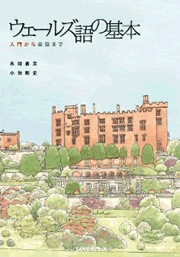
Last night we were talking about the Pili Palas on Anglesey, a butterfly centre, which also has birds, snakes and other exotic creatures. The name is a pun combining pili-pala (butterfly) and palas (palace) – it took me ages to realise this. We were trying to think of the words for butterfly in various other languages and came up with the French, papillon, and the Spanish mariposa, but got stuck after that. This got me wondering why these words are so different in different languages.
The English word butterfly comes from the Old English buttorfleoge, perhaps from bēatan (to beat) and flēoge (fly), or perhaps it was the name just for yellow butterflies, and/or because butterflies were thought to eat butter and milk.
In Middle High German butterflies were known as molkendiep (“milk-thief”) and in Low German a butterfly is a Botterlicker (“butter-licker”) [source]. In Modern German Schmetterling /ˈʃmɛtɐlɪŋ/ is the word for butterfly – from Schmetten (cream) – from the Czech smetana (cream). This is based on the folk belief that witches transformed themselves into butterflies to steal cream and milk [source].
Welsh words for butterfly include iâr fach yr haf (“summer chick”), glöyn byw (“living coal”), pila-pala and bili-balo.
Like iâr fach yr haf in Welsh, butterflies are known as “summer birds” in Norwegian, sommerfugl, and in Yiddish, zomerfeygele.
In Irish the word for butterfly is féileacán, possible from the Old Irish etelachán (little flying creature / butterfly), from etelach (flying) [source]. The Manx butterfly, foillycan, comes from the same root, but in Scottish Gaelic butterflies are seilleann-dé (“God’s bee”) and dealan-dè (“God’s lightening”).
The French word for butterfly, papillon, comes from the Latin pāpiliō (butterfly, moth) – of unknown origin, and also the root of the English word pavilion (via Old French) [source]. The Italian farfalla (butterfly) comes from the same source.
The Spanish word for butterfly, mariposa, apparently comes from the expression Mari, posa(te (Mary, alight!), which features in children’s songs and games, or from la Santa Maria posa (the Virgin Mary alights/rests). Other theories about the etymology of this word.
There is more discussion of words for butterfly in various languages on AllExperts, and there are words for butterfly in many more languages here.

